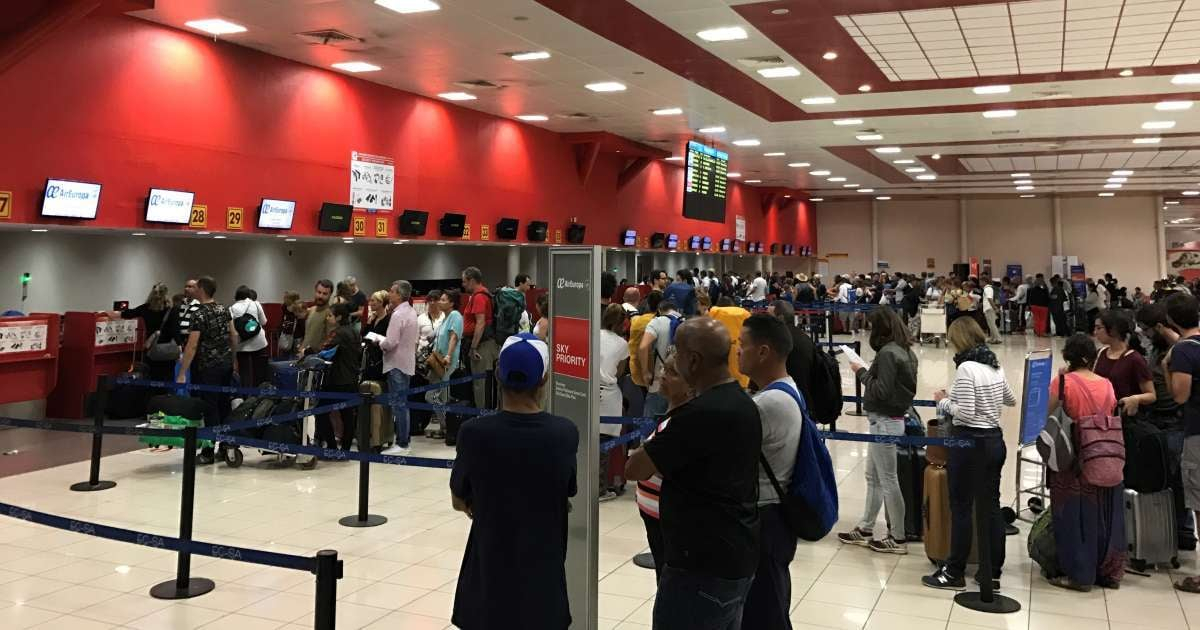The U.S. government expanded its sanctions policy this Wednesday, targeting executives of travel agencies and tour operators who facilitate irregular migration from Latin America. According to a State Department statement, visa restrictions under Section 212(a)(3)(C) of the Immigration and Nationality Act (INA) will be broadened. This section prohibits issuing visas to individuals who aid irregular migration to the U.S. and profit from exploiting vulnerable migrants.
The policy, which previously affected airlines and charter flights, will now apply to travel agency executives and tour operators offering travel services primarily designed for irregular migrants. An example is travel agencies that sell tour packages to Cubans to visit Nicaragua, known as the “Land of Volcanoes.” These agencies drop off passengers at a hotel, knowing they will not stay for any tours but will instead travel through Central America to the U.S. border.
“No one should profit from vulnerable migrants—not traffickers, private companies, public officials, or anyone else,” stated U.S. authorities.
With the implementation of this policy, the U.S. will continue using “visa restrictions against unscrupulous transportation executives” as part of a campaign to eliminate exploitative practices both inside and outside the Western Hemisphere, the statement added.
This action expands a policy announced by the State Department in February 2024, which replaced an earlier policy from November 2023 under Section 212(a)(3)(C) of the INA. Initially, this policy targeted high-ranking officials of companies providing land, sea, or air charter transportation. Now, it also covers high-ranking officials of travel agencies and tour operators.
Since last year, these measures have started affecting companies transporting irregular migrants to Nicaragua, mainly from Cuba and Haiti.
In early November 2023, the U.S. expressed concern over the increase in charter flights from Cuba to Nicaragua, noting that these flights were full of passengers leaving the island and returning empty. Two weeks later, the State Department announced it was evaluating potential consequences for companies facilitating the exodus of Cubans through Nicaragua via charter flights.
On June 13, the White House announced sanctions against transporters aiding the entry of irregular migrants into the U.S. through flights from Cuba to Nicaragua.
FAQs on U.S. Sanctions Against Travel Agencies and Tour Operators
To provide more clarity on the recent U.S. sanctions against travel agencies and tour operators aiding irregular migration, we have compiled some frequently asked questions and their answers.
What is Section 212(a)(3)(C) of the Immigration and Nationality Act?
Section 212(a)(3)(C) of the INA prohibits issuing visas to individuals who facilitate irregular migration to the U.S. and benefit from the exploitation of vulnerable migrants.
Who is affected by these new sanctions?
The new sanctions target executives of travel agencies and tour operators who offer services primarily designed for irregular migrants.
Which countries are primarily involved in these migration routes?
The migration routes primarily involve countries like Cuba and Haiti, with a notable increase in charter flights from Cuba to Nicaragua.
What actions has the U.S. taken against these companies?
The U.S. has imposed visa restrictions and announced sanctions against transporters facilitating the entry of irregular migrants into the country.

